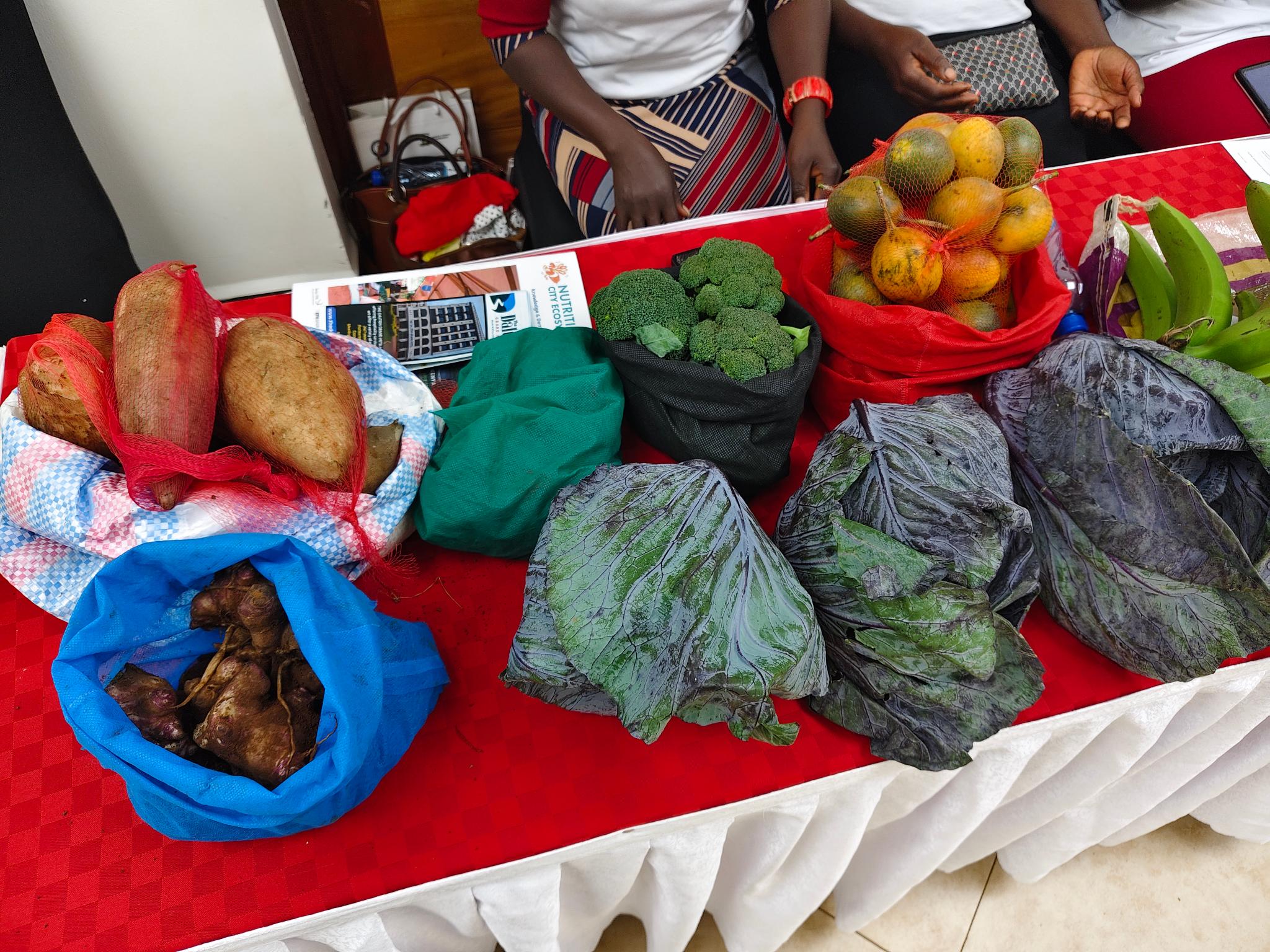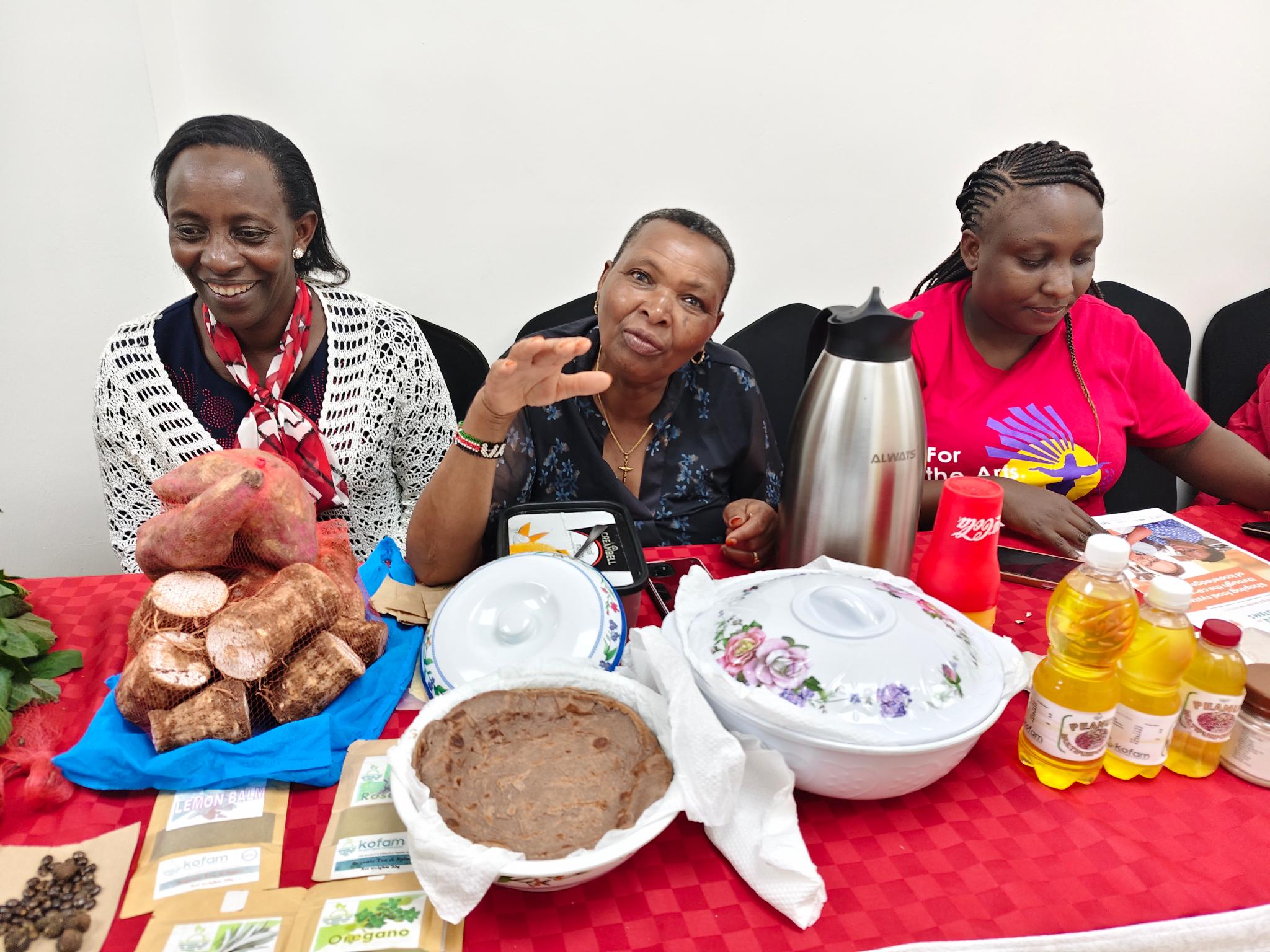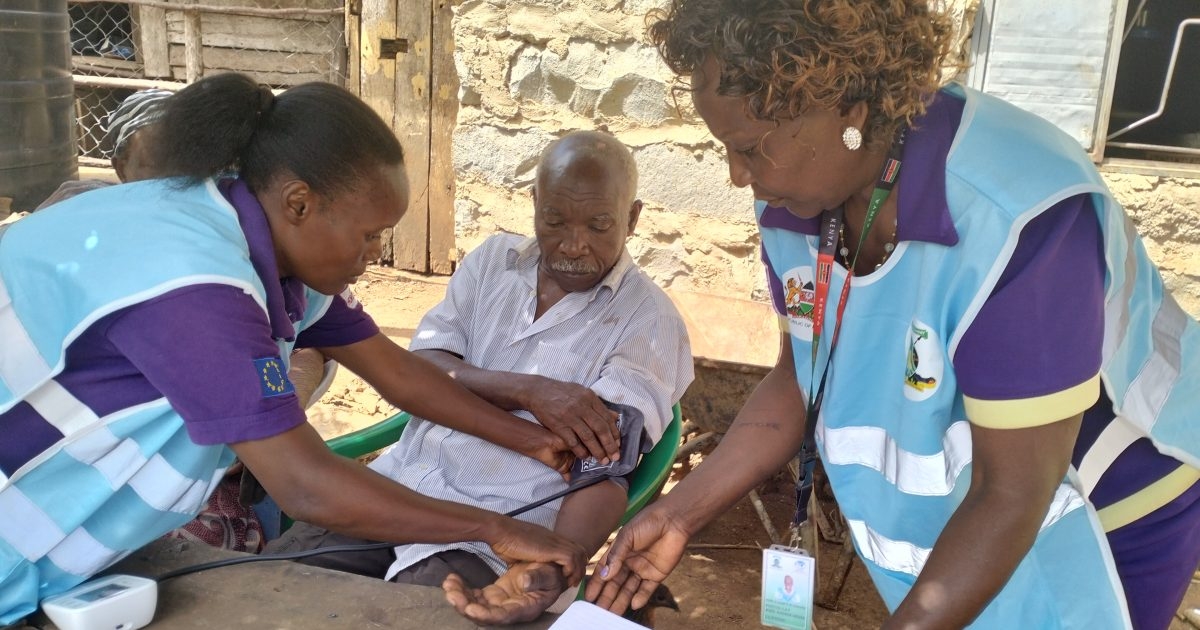
 Organic farm produce displayed during the launch of Food Farmacy programme in Murang'a county on November 5, 2025
Organic farm produce displayed during the launch of Food Farmacy programme in Murang'a county on November 5, 2025The Murang’a government has started a programme to train residents on better feeding habits to manage and treat diseases.
The project implemented in partnership with Diabetes Awareness Trust (DAT) is set to have centres opened in each of the 35 wards to train residents on the right foods to consume.
It’s one of the initiatives being implemented in the county under Murang’a Agro-ecology Policy enacted in 2023, and which has seen numerous activities undertaken to promote organic farming and consumption of organically produced foods.
Murang’a county is one of the regions grappling with a heightened prevalence of non-communicable diseases, including arthritis, hypertension, diabetes and cancer.
Hannah Kigamba, a director at DAT, said the project is geared towards enhancing disease prevention and enabling community members with chronic illnesses to manage them through food.
“We intend to take nutrition advisory from the hospitals to the community. We will also be working with community health promoters because they are the people in the grounds”.
The CHPs will undergo training and will afterwards be expected to disseminate the information through youth, women and community groups.
Patients with chronic illnesses will be referred to the
centres where they will find nutritionists, who will then advise them on the
foods to consume, and how, to manage their illnesses.
“This project is starting right now and will conclude in June 2029. We are now looking for other partners to help establish more centres in the rest of the wards,” Kigamba said.
“We want a situation where every consumer in the county has access to safe food and nutrition advise through the food farmacy outlets”.
 Hannah Kigamba, the director of Diabetes Awareness Trust that is spearheading Food Farmacy programme in Murang'a county
Hannah Kigamba, the director of Diabetes Awareness Trust that is spearheading Food Farmacy programme in Murang'a countyUnder the project, extension officers from the county governments and development partners will also be engaged to build the community’s capacity and sensitise them on the need to engage in organic farming to enhance the nutrition of their produce.
Kigamba said that in the centres, residents will be taught to prepare foods to preserve their nutritional value and ensure they get maximum value from them.
The priority, she explained, will be people already suffering from NCDs and women with children under the age of five.
“For instance, in the case of Type 2 diabetes, patients can be taught to manage and even reverse it,” Kigamba said.
The director said by the end of the project, smallholder farmers will have acquired a new market for their organic produce while consumers will have improved their health status.
Devolution executive committee member Kiringai Kamau said the food farmacy centres will be piloted in Kangema and Kenol towns that have been found to be having higher cases of NCDs.
The conditions, Kamau said, are mostly caused by poor feeding habits and lifestyles and can be controlled with improved diets.
“Treating diseases with food is not like using drugs. It doesn’t have the unpleasant side effects of drugs. This is one of the interventions that the county government is implementing to boost healthcare”.
Once residents are trained to manage and evade illnesses, the number of people streaming into health facilities will be drastically cut while their productivity will be enhanced.
 Members of KOFARM, an organic farmers association from Kangari, Murang'a, display organic products during the launch of food farmacies programme in Murang'a town on November 6, 2025 /ALICE WAITHERA
Members of KOFARM, an organic farmers association from Kangari, Murang'a, display organic products during the launch of food farmacies programme in Murang'a town on November 6, 2025 /ALICE WAITHERATraditionally, Kamau said, people would consume indigenous
foods and herbs and strengthened their immunity and shielded them from
illnesses.
He, however, noted that lately, more Kenyans have become aware
of the need to consume healthy foods, especially with the clamour for organic
products.
Kamau said the county plans to ensure locals consume food
as medicine to reduce their dependence on conventional drugs.
“These centres will be known as food farmacies. They will
also serve as stores of foods prescribed by nutritionists and when people visit
them, they will get food prescriptions instead of pills prescriptions and will
also be advised how to grow them in their farms,” he said.
“We’re planning to have these foods that can be consumed as medicine
and grown in every household.”
The county government is also working with MCAs to see each
ward benefit with one centre to ensure every member of the community
is reached.
His finance counterpart Kiarie Mwaura said the county
health budget stands at Sh3 billion annually, driven by the high morbidity, and
which may be reduced once the project is fully implemented.
Samuel Maina said organic farming has transformed his life,
ensuring he has money in pocket and enhancing his health.
He said the vegetables, herbs and milk that he produces on his farm have a ready market as people stream into his farm in Kangari,
Kigumo, to buy them.
Instant Analysis
The project implemented in partnership with Diabetes Awareness Trust (DAT) is set to have centres opened in each of the 35 wards to train residents on the right foods to consume. Murang’a county is one of the regions grappling with a heightened prevalence of non-communicable diseases, including arthritis, hypertension, diabetes and cancer. Patients with chronic illnesses will be referred to the centres where they will find nutritionists who will then advise them on the foods to consume, and how, to manage their illnesses.




















